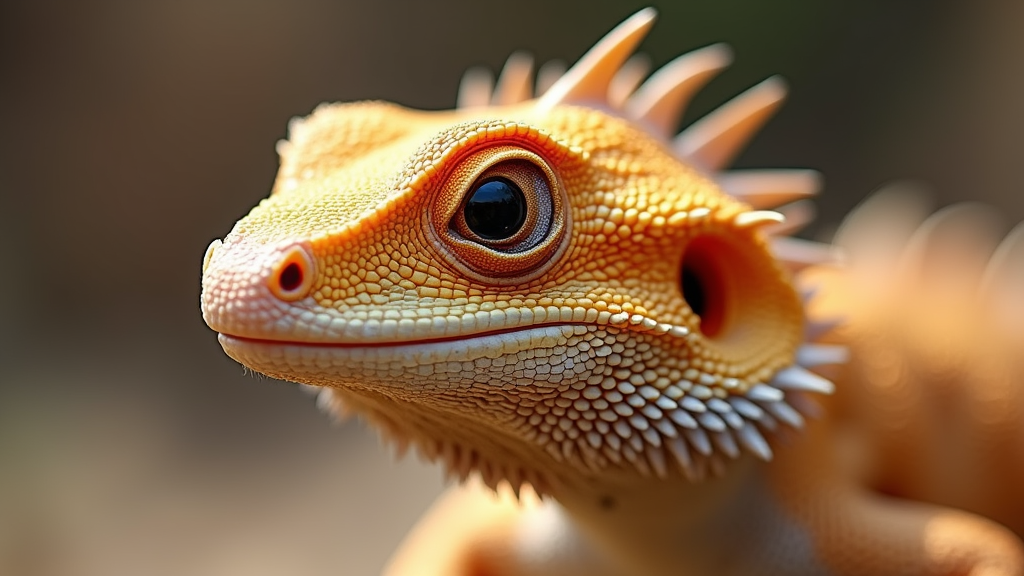The Ultimate Guide to Calcium and Vitamin D3 for Bearded Dragons
Bearded dragons are incredible pets, but like any exotic animal, they have specific dietary needs to thrive. One of the most essential aspects of their diet is proper calcium and Vitamin D3 intake. Neglecting these can lead to severe health issues, some of which may be irreversible. In this comprehensive guide, we’ll delve into why calcium and Vitamin D3 are vital for your bearded dragon, how to ensure they get enough, and practical tips from years of personal experience.
The Importance of Calcium and Vitamin D3 for Bearded Dragons
Why Calcium is Essential
Calcium plays a crucial role in your bearded dragon’s overall health. It’s vital for strong bones, muscle function, and nerve signalling.
- Bone Strength: Calcium helps in the development of sturdy bones. Without adequate calcium, your bearded dragon may develop metabolic bone disease (MBD), a severe condition that can make their bones fragile and deformed.
- Muscle Function: Calcium enables proper muscle contractions. Low levels might lead to muscle tremors and lethargy.
- Nerve Signalling: Proper calcium levels are required for effective nerve signalling, which affects everything from movement to digestion.
The Role of Vitamin D3
Vitamin D3 works hand-in-hand with calcium. It helps your bearded dragon absorb calcium efficiently.
- Calcium Absorption: Without Vitamin D3, your pet will struggle to absorb calcium properly, no matter how much is in their diet.
- Bone Health: Vitamin D3 prevents bone deformities and maintains overall skeletal structure.
- Immune System: It also plays a role in keeping your bearded dragon’s immune system robust.
How to Ensure Adequate Calcium and Vitamin D3 Intake
Dietary Sources
Ensuring that your bearded dragon gets enough calcium and Vitamin D3 starts with their diet.
Calcium-Rich Foods
- Leafy Greens: Collard greens, kale, and mustard greens are excellent sources of calcium.
- Vegetables: Butternut squash and bell peppers can also contribute.
- Insects: Crickets and Dubia roaches can be dusted with calcium powder before feeding.
Vitamin D3 Sources
While Vitamin D3 supplements are available, the most effective source is UVB lighting.
- Natural Sunlight: If possible, allow your bearded dragon some supervised time outside for natural UV exposure.
- UVB Lighting: Invest in a high-quality UVB light for their terrarium, as this will help them synthesize Vitamin D3, crucial for calcium absorption.
Supplements: The Do’s and Don’ts
Supplements are necessary in most cases, especially if natural light is limited.
Choosing the Right Supplement
- Calcium Powder: Look for a product that is phosphorous-free and specifically formulated for reptiles.
- Vitamin D3: Some calcium powders come with added Vitamin D3. If using a separate Vitamin D3 supplement, ensure you don’t overdo it, as it can be toxic in high amounts.
How to Administer
- Dusting Food: Sprinkle a light coating on their insects or vegetables. Aim for 2-3 times a week for adult dragons and 4-5 times a week for juveniles.
- Gutting and Dusting: Calcium gut-loading is a method where feeder insects are fed calcium-rich foods before being offered to your dragon. This, combined with dusting, ensures a balanced intake.
Monitoring and Adjusting Their Diet
Signs of Calcium and Vitamin D3 Deficiency
Keeping an eye on your bearded dragon is key. Here are some signs of deficiency to watch out for:
- Weakness and Lethargy: A sluggish dragon might not be getting enough calcium.
- Tremors: Shaky limbs are often an early sign.
- Bone Deformities: Swollen limbs or a limp tail can indicate severe deficiency.
Regular Vet Check-ups
Given the complexities of their dietary needs, it’s imperative to schedule regular veterinary check-ups. A vet can perform blood tests to ensure your bearded dragon’s calcium and Vitamin D3 levels are within the appropriate range.
Conclusion
Providing your bearded dragon with adequate calcium and Vitamin D3 is non-negotiable for their health and wellbeing. From dietary choices to the right supplements and UVB light, it’s a multifaceted approach requiring careful attention and regular monitoring. Remember, always consult a reptile vet for nuanced advice tailored to your specific pet. Your bearded dragon will thank you for the care and attention with a long, healthy life.
Meta Description:
Discover why calcium and Vitamin D3 are crucial for your bearded dragon’s health, how to ensure they get enough through diet and supplements, and expert tips for optimal care.
Internal Links:
Top 10 Foods for Bearded Dragons
External Links:
Comprehensive Guide on UVB Lighting
Whether you’re a seasoned owner or new to the bearded dragon community, this guide equips you with the essential knowledge to keep your reptile friend healthy and vibrant. Until next time, happy herping!

